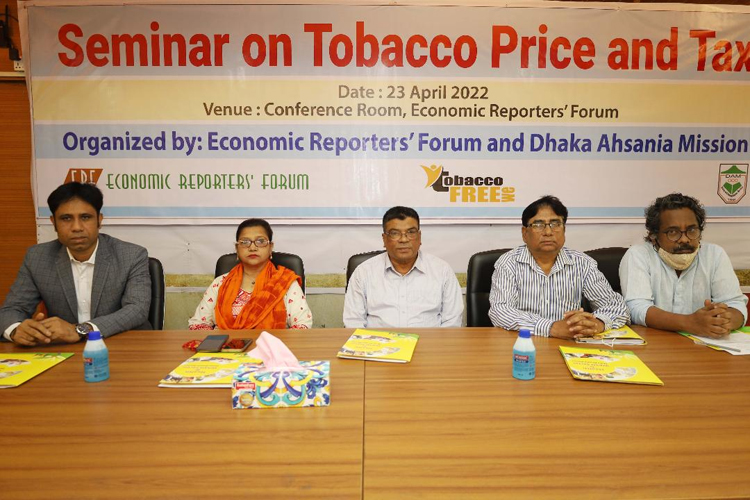
DHAKA, April 23, 2022 (BSS) - Speakers at a seminar today proposed for
raising the price of cigarettes at the low-tier to boost revenue generation
of the government and also minimize health risks.
They said although the low-tier cigarettes occupy almost 75 percent of the
whole industry, but its price remained unchanged over the last two years. As
a result, the number of smokers at this level is not declining.
The speakers came up with such suggestions at a seminar organized jointly by
Dhaka Ahsania Mission and the Economic Reporters' Forum (ERF) titled "Tobacco
Price and Tax" held at the ERF auditorium in the capital today.
Presided over by ERF President Sharmeen Rinvy, its general secretary SM
Rashidul Islam, Dhaka Ahsania Mission deputy director Mokhlesur Rahman, CTFK
Grants manager Abdus Salam Mia, among others, spoke on the occasion.
Director (research) of Unnayan Shamannay Abdullah Nadvy made the key-note
presentation.
They suggested that the price of cigarettes should be increased considering
the rise in per capita income and inflation.
They said there is no alternative for raising the price of tobacco products
to turn Bangladesh into a tobacco free country by 2041 as announced earlier
by Prime Minister Sheikh Hasina.
Nadvi in his key-note presentation said that the current duty structure of
cigarettes is complex and it should be more simplified.
He proposed for making the price of every cigarette packet of 10 sticks at
the low-tier at Taka 50 from the existing Taka 39 while in the mid-tier, the
price of cigarette packets should be Taka 75 from Taka 63. Side by side,
Nadvy suggested for raising the price of cigarettes at the high-tier
specifically.
"If this proposal is implemented, the revenue of the government will be
boosted while the number of smokers will be reduced by 13 lakh. Besides, some
9 lakh youths will be discouraged to continue smoking." he added.
In his welcome address, deputy director of Dhaka Ahsania Mission Mokhlesur
Rahman said that the government has already announced to turn Bangladesh as a
smoking free country by 2041 and to materialize this, there is no alternative
to raising the duty on cigarettes and tobacco products.
CTFK Grants manager Abdus Salama Mia said that it is very much necessary to
control the use of tobacco in turning Bangladesh as a developed country.
"This will not only help alleviating poverty, but also reduce the cost of the
government in addressing the tobacco related diseases."